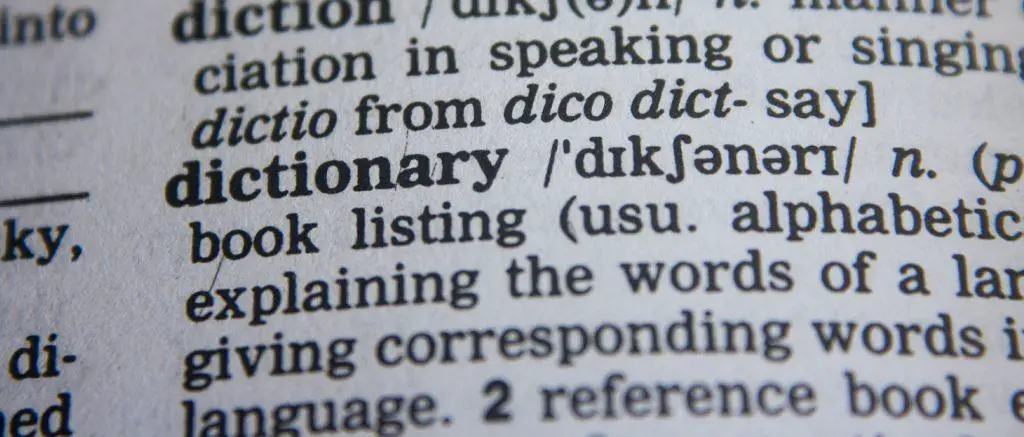Writing a Cover Letter in English – Introduction
 A cover letter is an essential document that accompanies your resume when applying for a job.
A cover letter is an essential document that accompanies your resume when applying for a job.
It serves as an introduction to your potential employer and highlights your qualifications, skills, and experience. Writing a cover letter in English may seem daunting, especially if you’re not a native speaker. Unfortunately, it’s a necessary evil when it comes to applying for a job. A well-written cover letter can make all the difference in landing an interview, and ultimately, the job you’re seeking. It’s a chance to showcase your skills, experience, and personality to a potential employer. On the other hand, a poorly written cover letter can quickly end your chances of getting hired.
However, with the right approach and knowledge of the dos and don’ts, you can create a cover letter that impresses your potential employer.
In this article, I will discuss the essential dos and don’ts of writing a cover letter in English to help you craft a killer cover letter in English that will stand out from the rest.
Writing a Cover Letter in English – Dos
Do Research the Company and Job Posting
Before you start writing your cover letter, research the company you’re applying to and the job posting. This will help you tailor your cover letter to the specific position and show the employer that you’re genuinely interested in the job.
Look at their website, social media channels and any news articles or press releases. This will give you a good idea of the company culture, values, and what they’re looking for in an employee.
Do Address the Hiring Manager by Name
Addressing the hiring manager by name shows that you’ve done your research and are genuinely interested in the position.
If the name isn’t available in the job posting, try to find it on the company website or LinkedIn. Alternatively, you can phone the company and ask the receptionist for the name.
It’s always better to use the name rather than a generic greeting such as “To Whom It May Concern”.
Do Start with a Strong Opening
The opening sentence of your cover letter is crucial as it sets the tone for the rest of your letter. Grab the recruiter’s attention by starting with a strong opening that highlights your interest in the job and showcases your relevant skills and experience.
Do Tailor Your Cover Letter to the Job Posting
A generic cover letter won’t impress your potential employer. Instead, customise it to the job posting and highlight your skills and experience that match the job requirements. Use specific examples and achievements to demonstrate your suitability for the position.
Do Highlight Your Relevant Skills and Experience
Your cover letter should highlight your relevant skills and experience that make you the best candidate for the job. Use specific examples of how you’ve used these skills in the past to demonstrate your abilities.
Do Highlight Your Achievements
Use your cover letter to showcase your achievements and how they relate to the job you’re applying for.
Quantify your achievements with numbers or percentages where possible to demonstrate the impact you’ve had in previous roles.
Mention any awards, publications or projects that demonstrate your skills and experience. However, keep it brief and relevant to the position.
Do Be Concise and Clear
Recruiters and hiring managers are busy people and receive numerous cover letters. They don’t have time to read through lengthy paragraphs. Respect their time by being concise and clear with your writing and keep your cover letter to one page.
Do Proofread Your Cover Letter
Spelling and grammar errors can be a deal-breaker for hiring managers.
Once you’ve written your cover letter, proofread it and edit it multiple times. Ask a friend or mentor to review it. Using tools such as Grammarly or Hemingway to catch errors and improve your writing will ensure that your letter is well-written and polished
Do Keep Your Cover Letter Concise
A cover letter shouldn’t be longer than one page.
Use short paragraphs and bullet points to make it easy to read. Keep the tone professional but engaging.
Writing a Cover Letter in English – Don’ts
Don’t Use Clichés and Buzzwords
Avoid using clichés and buzzwords such as “team player”, “hard worker” or “go-getter”. They’re overused, don’t add value to your cover letter and make you sound unoriginal.
Instead, use specific examples and achievements to demonstrate your skills.
Don’t Use Jargon or Slang
Avoid using jargon or slang in your cover letter. Stick to professional language that’s easy to understand.
Don’t Repeat Your Resume
Your cover letter should complement your resume, not repeat it. Use your cover letter to highlight your skills and experience in more detail, instead of just regurgitating what’s already in your resume.
Use the cover letter to provide context and explain why you’re interested in the position.
Don’t Include Unrelated Information
Don’t include information in your cover letter, such as your marital status or hobbies unless they’re directly relevant to the job you’re applying for.
Stick to the essential information that showcases your skills and experience.
Don’t use a Casual Tone
A cover letter is a professional document, so avoid using a casual tone or slang. Don’t use contractions. Keep your language formal and professional.
Don’t Be Arrogant
Your cover letter should strike a balance between being confident and humble.
Avoid coming across as arrogant, as this can be a huge turn off for recruiters and hiring managers.
Don’t Focus on What the Company Can Do for You
While it’s essential to highlight your relevant skills and experience, don’t focus solely on what the company can do for you.
Instead, show the employer how you can contribute to the company’s success.
Don’t Sound Desperate
Avoid using a desperate tone in your cover letter.
Instead, focus on your skills and experience and how they align with the job requirements. Don’t beg for the job or sound too eager.
Don’t Forget to Follow Up
End your cover letter by thanking the hiring manager for their time and consideration. Let them know that you’re looking forward to hearing from them.
Follow up with a polite email or phone call after a week or two. This shows that you’re interested in the job and can help you stand out from other candidates.
Writing a Cover Letter in English – Summary
In conclusion, writing a cover letter in English can be challenging, but with the right approach, you can create a killer cover letter that will get you noticed by potential employers.
Remember to address the hiring manager by name, tailor your cover letter to the job posting, start with a strong opening, highlight your achievements, skills and experience, proofread your work and keep it concise.
Avoid using clichés, buzzwords, jargon and slang, repeating your resume, including irrelevant information, being arrogant or sounding desperate and forgetting to follow up.
By following these dos and don’ts, you’ll increase your chances of getting an interview and landing the job. A well-crafted cover letter can make a significant impact on the hiring manager and set you apart from other applicants.
However, keep in mind that each job posting and company may have specific requirements and expectations for a cover letter. Research the company culture, values and mission to tailor your cover letter accordingly. Use your cover letter to demonstrate your knowledge and interest in the company and how you can contribute to its success.
Finally, remember that writing a cover letter is an opportunity to showcase your communication and writing skills. Take the time to craft a well-written and engaging cover letter that highlights your qualifications and experiences.
With a well-crafted cover letter, you’ll be one step closer to landing your dream job. With these dos and don’ts, you’re on your way to creating a winning cover letter that sets you apart from the competition.
FAQs
Q: Is it necessary to write a cover letter when applying for a job?
A: While it’s not always mandatory, a cover letter can help you stand out from other applicants and showcase your qualifications and experience.
Q: How long should a cover letter be?
A: A cover letter should not be longer than one page long, with around three to four paragraphs. Keep it concise and to the point.
Q: Should I address the hiring manager by name in my cover letter?
A: Yes, if possible, address the hiring manager by name. It shows that you’ve done your research and are genuinely interested in the position.
Q: Should I include my salary expectations in my cover letter?
A: It’s generally not recommended to include your salary expectations in your cover letter unless the employer specifically asks for them. This is something that can be discussed during the interview process.
Q: Can I use a template for my cover letter?
A: Using a template can be a good starting point for your cover letter, but make sure you customise it to the specific job and company you’re applying to. Avoid using a generic template that doesn’t highlight your skills and experience.
Q: Can I use the same cover letter for different job postings?
A: It’s better to customise your cover letter for each job posting to highlight your skills and experiences that match the job requirements.
Q: What should I include in my cover letter?
A: Include a brief introduction, why you’re interested in the job, how your skills and experience align with the job requirements and a closing statement. It should also include specific examples of your achievements, your interest in the company, and a call to action.


